The Tabook
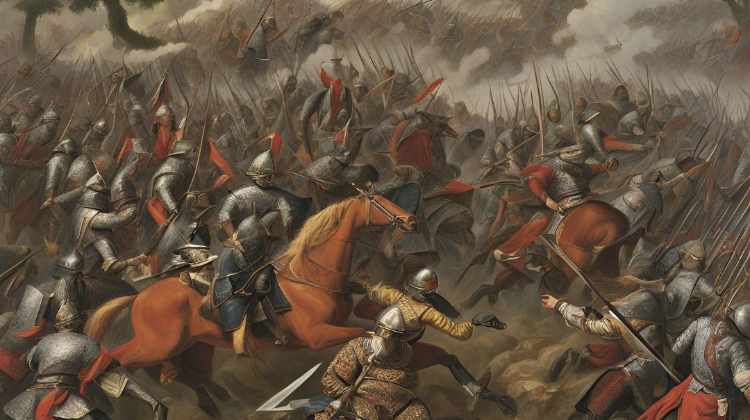
The Tabook
Now I shall deal with a very important subject. The subject, being the expedition to Tabook which took place in A.H. 09; no particular importance has been given to this expedition by the Olema (scholars) of this Deen or by the historians; they have treated it as any other raid and expedition, perhaps even less as there was no fight or battle in it. In reality this expedition was by far more important and pregnant with weighty significance than any previous expedition or battle though there was actually no fight involved in it. The very first point is that the spineless apologists have tried to show that this expedition also, like all other actions of the Messenger of Allah was defensive. To justify their claim they have stated that the Messenger heard from some traders that the Romans were preparing to attack the Muslims, and so he proceeded to confront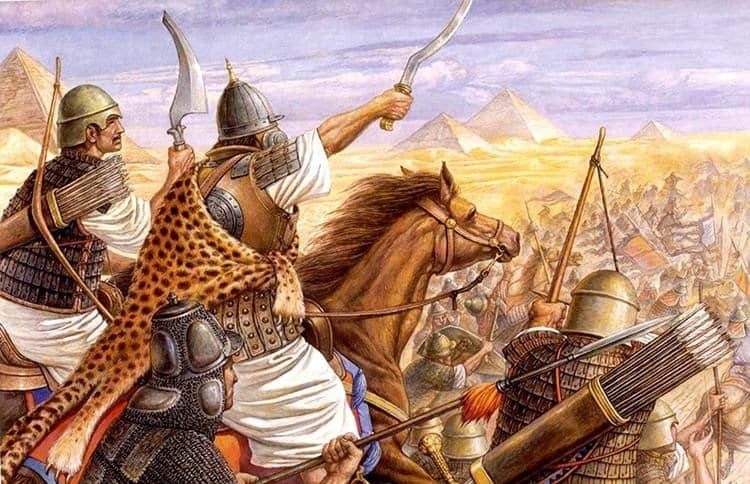 them. That they have added this false information later, when effort to exonerate themselves of being accused of offensive and aggressive began, is proved by the fact that in the very first biography of the Messenger the "Sirat-e-Rasulallah" by Muhammad bin Eshaq there is no mention of any trader or anything like that in the chapter - The Raid on Tabook. A.H.9. There he simply writes- "The apostle stayed in Madina from Dhellhijja to Rajab, and then gave orders to prepare to raid the Byzantines." The afore mentioned lie is absent in all other early biographies of the Messenger indicating that it has been added much later by the apologists. Secondly, by adding the lie they have disgraced Allah's Messenger, whom He has described as Uswatun Hassana (the finest model) as being naive enough to arrange and prepare the largest and strongest army in his career which was special in many ways, as I shall presently show, just because some traders whose names or identity was not even mentioned told him so. If these apologists, living in the depth of their inferiority complex, are right, then we have to admit that the Messenger of Allah was really naive enough to arrange the biggest expedition of his life and lead 30,000 Mojaheds out of Arabia and find that the information was false, there was no enemy to fight as the Romans were nowhere to be seen.
them. That they have added this false information later, when effort to exonerate themselves of being accused of offensive and aggressive began, is proved by the fact that in the very first biography of the Messenger the "Sirat-e-Rasulallah" by Muhammad bin Eshaq there is no mention of any trader or anything like that in the chapter - The Raid on Tabook. A.H.9. There he simply writes- "The apostle stayed in Madina from Dhellhijja to Rajab, and then gave orders to prepare to raid the Byzantines." The afore mentioned lie is absent in all other early biographies of the Messenger indicating that it has been added much later by the apologists. Secondly, by adding the lie they have disgraced Allah's Messenger, whom He has described as Uswatun Hassana (the finest model) as being naive enough to arrange and prepare the largest and strongest army in his career which was special in many ways, as I shall presently show, just because some traders whose names or identity was not even mentioned told him so. If these apologists, living in the depth of their inferiority complex, are right, then we have to admit that the Messenger of Allah was really naive enough to arrange the biggest expedition of his life and lead 30,000 Mojaheds out of Arabia and find that the information was false, there was no enemy to fight as the Romans were nowhere to be seen.
The reality is that there was no such information that Romans were coming to attack the Muslims or anything like that even remotely. To understand the affair of the Tabook expedition in its true significance we have to remember some basic facts, which are:- a) Allah he sent His last Messenger to Mankind with two basic things. One, is Hedayah (the Guidance, Right direction or orientation), two, Deen ul Haq (the true Deen i.e. system, way of living on earth) with order to establish and make these effective in Mankind's life, thereby making all other ways, systems of life ineffective, inactive. In at least three places in the Qur'an He clearly informs us the reason of sending His Messenger to Mankind. He says-"It is He who has sent His Messenger with Guidance (Hedayah) and the true Deen (system, way of life), so that he makes it prevail over all other systems." Here the Guidance is Tawheed, i.e. obey and worship none other than Allah, and the Deen is the system of life based on that Guidance. The reason of doing this I have stated earlier in the chapter on Tawheed and the Kalema. For Allah to win in the challenge thrown to Him by the Eblis the only way is to make Mankind obey none other but Him and Him only. Mankind must have and live by a system of life, which must contain legal, penal, economic, political, social, other systems. It is impossible for Mankind to survive without a system to live by and if they do live by a system they themselves device, which cannot be perfect, then they will land into injustices, economic, social, political injustices, and disruption of law and order resulting in crimes and offences, conflicts among mankind and bloodshed exactly the things the Eblis said he will throw Mankind into by seducing them away from the guidance sent through the Messengers, and what we are now living in.
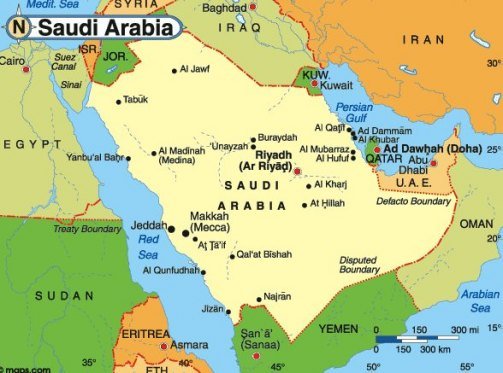 As I have stated earlier, the policy and process to "prevail it over all other systems" has been ordained by Allah Himself to do Jehad (utmost struggle) and Qetal (armed fight). To ensure that the Mo'mens do not limit and confine themselves within only Jehad (struggle) He has explicitly state in another Ayat that Qetal is also included. In Ayat 216 of Surah Baqarah He in unambiguous terms puts down - "Armed fight is hereby ordained for you" putting an end to all arguments if Islam is militant or not. The Messenger of Allah, according to policy and process set by Allah fought over 100 armed battles and established, 'prevailed' the Tawheed based Deen over Arabia. But he did not forget that the responsibility to establish the Guidance (Tawheed) based Deen over the other Deens was not limited to Arabia, but over the whole world, which was not possible in his lifetime. So he created the Ummah (Nation), taught them how to struggle, fight, sacrifice lives and properties in the way of Allah to establish Islam, thereby put an end to all injustices, turmoil, unrest, bloodshed on one hand and on the other make Allah victorious in the challenge thrown to Him by the Eblis. He knew this Ummah must continue to fight to fulfill his incomplete task after his departure. So besides training the Mojaheds in more than 100 battles, he trained different commanders by sending armies under their command. His success is manifest in the history of the Ummah after his departure, where we see those commanders leading the Mo’mens like furious storms and tornadoes which blew away the much larger Imperial armies of the Romans and Persians, besides other smaller forces.
As I have stated earlier, the policy and process to "prevail it over all other systems" has been ordained by Allah Himself to do Jehad (utmost struggle) and Qetal (armed fight). To ensure that the Mo'mens do not limit and confine themselves within only Jehad (struggle) He has explicitly state in another Ayat that Qetal is also included. In Ayat 216 of Surah Baqarah He in unambiguous terms puts down - "Armed fight is hereby ordained for you" putting an end to all arguments if Islam is militant or not. The Messenger of Allah, according to policy and process set by Allah fought over 100 armed battles and established, 'prevailed' the Tawheed based Deen over Arabia. But he did not forget that the responsibility to establish the Guidance (Tawheed) based Deen over the other Deens was not limited to Arabia, but over the whole world, which was not possible in his lifetime. So he created the Ummah (Nation), taught them how to struggle, fight, sacrifice lives and properties in the way of Allah to establish Islam, thereby put an end to all injustices, turmoil, unrest, bloodshed on one hand and on the other make Allah victorious in the challenge thrown to Him by the Eblis. He knew this Ummah must continue to fight to fulfill his incomplete task after his departure. So besides training the Mojaheds in more than 100 battles, he trained different commanders by sending armies under their command. His success is manifest in the history of the Ummah after his departure, where we see those commanders leading the Mo’mens like furious storms and tornadoes which blew away the much larger Imperial armies of the Romans and Persians, besides other smaller forces.
After establishing Tawheed (Guidance) based Deen (system of life) over the whole of Arabia, when time came for him to return to his Creator, he wanted to see if he had been able to build an Ummah which had acquired the qualities essential to achieve the great and arduous goal of prevailing the Guidance and the Deen over all other Deens (systems of living lives) on earth. He very much wanted to know if he was successful in building an Ummah (Nation) which was afraid of nothing except Allah, which could sacrifice life and wealth in His way without hesitation, could obey and carryout any order of the leader, undertake any hardship for Allah’s cause. That was why he ordered the expedition to Tabook. That this expedition was not like other Sariahs (armed aggressive patrols) is evident from the following facts.
1)When ordering for the preparation for the expedition he declared that it was against the Roman might in Syria. Previously in all military actions he not only never let it be known what his target, his destination was, he used to talk about it so elusively that people never knew his actual destination or at best got a wrong idea about it. This was meant to deceive the enemy intelligence. Tabook was the sole exception.
2)Since the Messenger made known the target of the expedition people knew the long distance they whould have to journey in the terrible heat.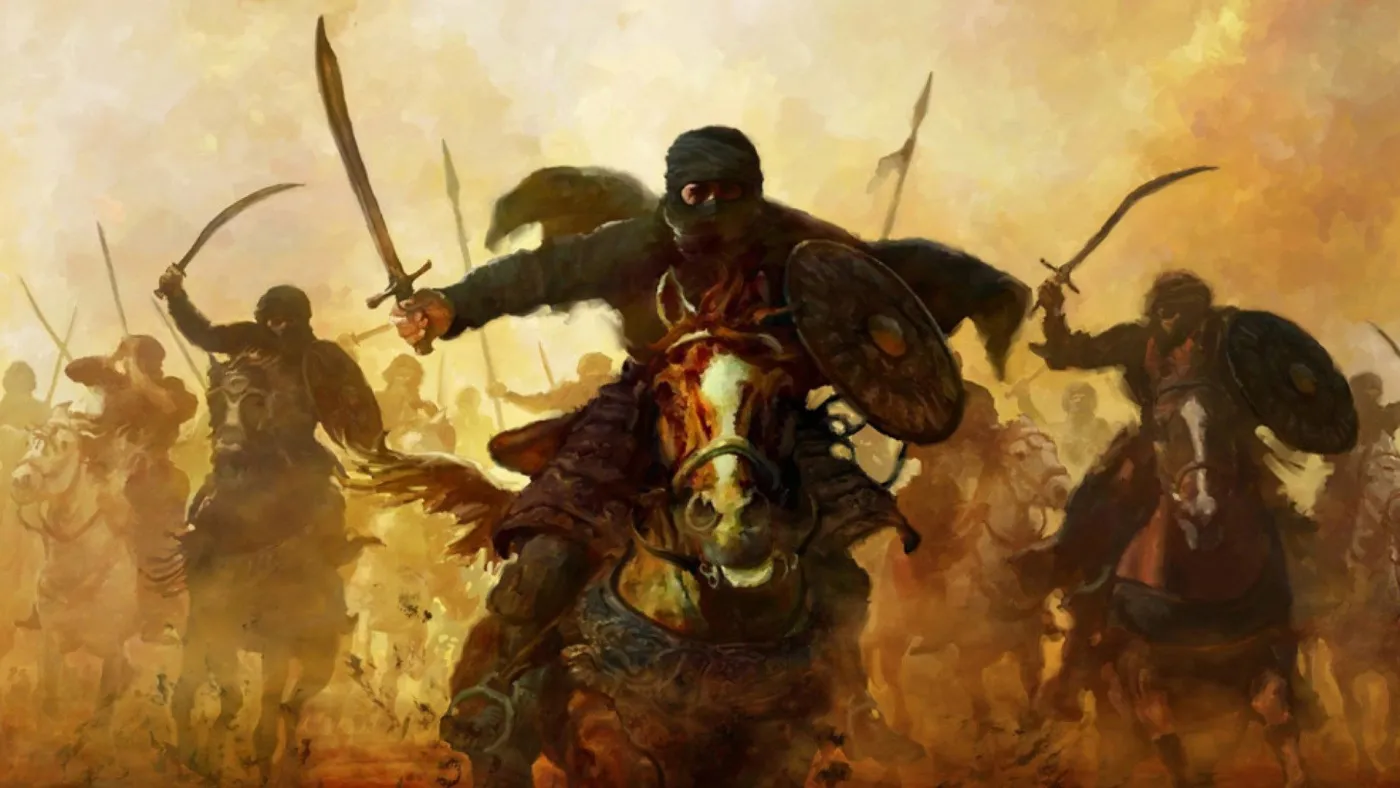
3)When he ordered the expedition it was time for harvest.
4)It was summer, and heat that summer was much more intense than usual.
5)Unlike other previous expeditions he ordered everybody to join and contribute as much as they could to the war–fund.
If we look into these points carefully which are exceptions and different from all other expeditions we find that:–
1)By declaring that they were going to fight the mighty Eastern Roman (Byzantine) empire the Messenger wanted to find out if his Ummah had become fearless and daring enough to take on anybody, any power on earth, if it had become afraid of nothing except Allah. It is known to historians that in pre–Islamic days the Roman and Persian soldiers claimed and believed that any one soldier of theirs was equal to ten Arabs whom they called beggars with contempt. Arabs themselves conceded to that claim. When the Messenger made known his target, the reputation of the Byzantine of the Roman army was evident from the fact that many were saying to the Mojaheds who were preparing for the expedition – “Do you think that fighting Byzantines is like a war between Arabs? By Allah, we seem to see you bound with ropes tomorrow.” So by declaring his destination and target, unlike all his previous expeditions the Messenger wanted to see if his Ummah had overcome all fears.
2)Since the Messenger declared the destination, his Ummah knew it was long distant. Until then, his Ummah was fighting inside Arabia, their own country, this time they knew they had to fight outside it.
3)He ordered the expedition at a time when fruits, dates in the Madina and around were ripe and it was harvest time. The Messenger chose that particular time to see if his Ummah was ready to sacrifice the crop on which people have put much labor and time, and on which their sustenance depended, just at the time of harvesting it, for the cause of Allah.
4)It was summer and that year the heat was exceptionally intense. My own opinion is that Allah increased the heat of that summer in response to His Messenger's prayer to test his Ummah. Men and women were oppressed with the severe heat and everybody sought shade and cool places.
5)Unlike all previous expeditions, raids, patrols, this time he ordered that it was compulsory for every able–bodied man to participate and also ordered them to contribute the most each person could. This he did to find out how much discipline and obedience was infused into it and how much people of his Ummah contributed voluntarily to the war fund. It was in this event that Omar (Ra) bin Khattab contributed half of all his cash and properties and thought none would surpass him, but was surprised and dismayed to find that Abu Bakr (Ra) contributed all he had had. When asked by the Messenger what had he left for his family Abu Bakr (Ra) replied that he left Allah and His Messenger for them.
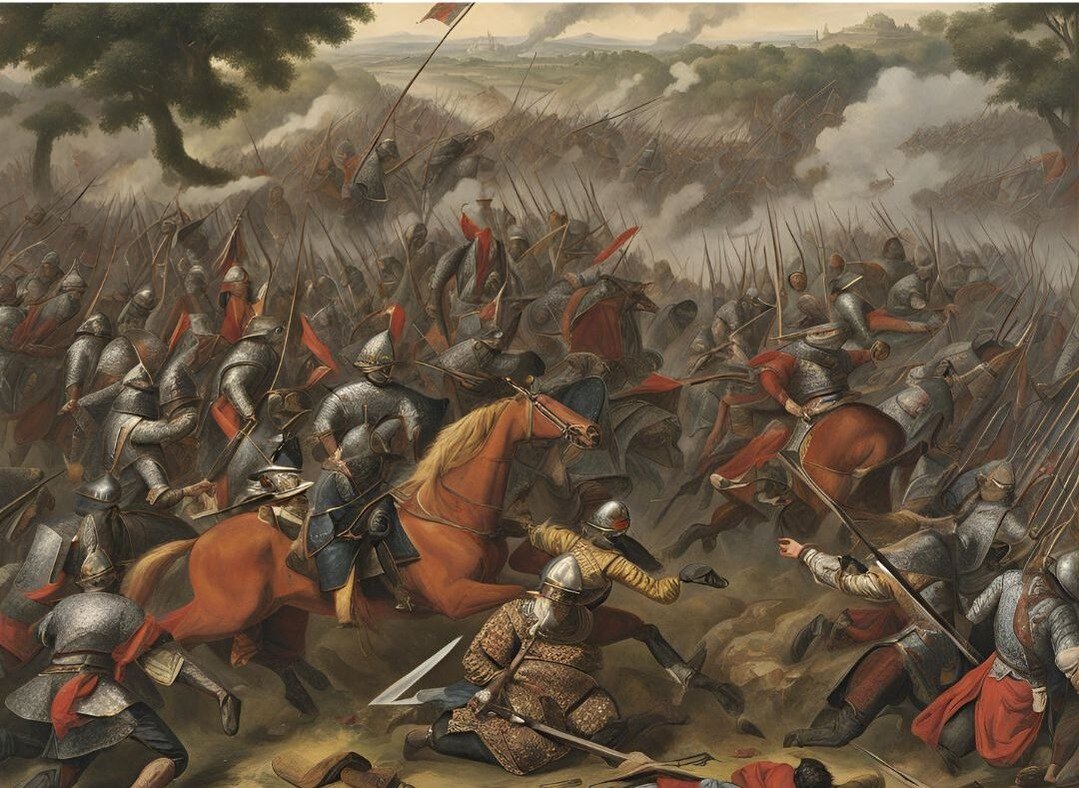 So, it is clear that the event of the Tabook was no ordinary expedition as has been described in the Hadis and histories: rather it was, at the end of the life of the Messenger, an answer to his query about what he had been able to achieve. After living a life unmatched in its persecution, humiliation, torture and confrontation followed by success, victory and triumph he wanted to know if he has been able to build the kind of Ummah he wanted. In spite of being the greatest life that ever lived, he knew his mission was not complete. The mission he was sent with by Allah was only partially accomplished, only Arabia was brought under the rule of Allah, but he was sent for the whole world, for Mankind. He wanted to see if he was successful in creating such an Ummah which would be able to continue his work in his absence, if the Ummah feared no power on earth, was ready to sacrifice their properties, trades, lands, family and proceed through terrible hardship to distant lands to sacrifice their lives for the cause of Allah and His Deen.
So, it is clear that the event of the Tabook was no ordinary expedition as has been described in the Hadis and histories: rather it was, at the end of the life of the Messenger, an answer to his query about what he had been able to achieve. After living a life unmatched in its persecution, humiliation, torture and confrontation followed by success, victory and triumph he wanted to know if he has been able to build the kind of Ummah he wanted. In spite of being the greatest life that ever lived, he knew his mission was not complete. The mission he was sent with by Allah was only partially accomplished, only Arabia was brought under the rule of Allah, but he was sent for the whole world, for Mankind. He wanted to see if he was successful in creating such an Ummah which would be able to continue his work in his absence, if the Ummah feared no power on earth, was ready to sacrifice their properties, trades, lands, family and proceed through terrible hardship to distant lands to sacrifice their lives for the cause of Allah and His Deen.
What did he find out? The test showed that he was entirely successful. From the entire Ummah only about 80 persons did not join the expedition, which constitutes only 0.26 percent. There is no instance of a leader in mankind who was able to transform an illiterate, extremely poor, starving, fighting internecine feuds for generation after generation into such an Ummah (Nation) in 25 years, in reality 10 years save Mohammad (SM) bin Abdallah, the last Messenger of Allah.
Now, the still bigger significance of the expedition to Tabook is what kind of test the Messenger of Allah took from his Ummah. What was the quality he wanted to find out if his Ummah had acquired? It is obvious that he would test his Ummah on those particular qualities which he thought the most important for carrying on the work he was to leave incomplete. The test of the Tabook expedition shows decisively that the Messenger considered those qualities stated above to be the most important in the character of the Ummah he built through his life long struggle and endeavor and was leaving behind. He did not try to find out how saintly Muttaqis (people who overcome their passions and refrains from all evil sins and performs only the acts of piety) through the people of his Ummah were, or how great Alems (learned in religion) or how impressive Muballegs (preacher) or how remarkable Mufassers (expounder of the Qur’an and Hadis) or how discerning Muftis (dispenser of religious decrees) or how adept Fuqaha (specialists in the religious law and jurisprudence) consisted the Ummah, he spent his life to build; nor did he try to see if his Ummah had produced Pirs.132 What he wanted to see at the end of his life was whether by his utmost struggle he was successful in building an Ummah which had attained the qualities of character to be able to continue the Jehad (utmost struggle which contains armed fight) to bring the Mankind under the rule, laws of Allah. So he wanted to see if his Ummah was united, disciplined, obedient, and ready to sacrifice all worldly possessions, travel long distances even to the other end of the world in adverse climate, in terrible heat or cold, fearless of mighty enemies, eager to lay down their lives to bring peace, security and happiness to Mankind and make Allah victorious against the Eblis in his challenge to Him. From the test itself it is manifest what kind of Ummah he had tried all through his life to create.
That Tabook was not just another expedition is proved by the fact that again unlike any other expedition the Messenger, on return to Madina, sat down to take account who are the people were who, in spite of his order that everybody should participate, did not do so. It was found that about 80 persons failed to join the expedition who came with various excuses for not joining it.
The Messenger of Allah heard them and accepted their excuses. One can have some idea of the tremendous importance of this expedition from the fact that though the Messenger accepted their excuses, Allah did not. He says in His Qu’ran– “They will make their excuses to you when you return to them. Say– Make no excuses, for we shall not believe you, Allah has informed us about you Allah and His Messenger will see your conduct and then you will be brought to back to Him who knows the unseen and the seen and He will tell you what you used to do. They will swear by Allah to you when you return to them, that you may let them be. Let them be, surely they are unclean and their dwelling place is hell, as recompense for what they used to earn. They swear to you that you may accept these. Though you accept them, certainly Allah does not accept wrongdoing people.”
The point to note especially for the present “over–Muslims” is that Allah declaring those people who did not join the expedition as unclean and that their abode is hell, and that He will not accept their excuses even though His Messenger did. Nowhere in the Qur’an has He ever said that the people in the Ummah of His Messenger are not Alems are unclean and their dwelling place is hell, or that who are not Faqih, are unclean and will go to hell, or about the Mufassers, Muhaddes, Mufti, or about Pirs, or Mashaekhs. But He specifically says that those who did not go to Jehad in the expedition are not only Rijs (Najas, unclean) but they will abide in hell. Allah has not used the word ‘unclean’ for any other category of people among the Ummah, not people who did not say their prayers regularly, pay zakah on time or make the pilgrimage to Hajj or observe sawm yet about those who shunned from fighting in His way are called ‘unclean’ and their dwelling place is to be hell.
There is yet another point worthy of note is that in the Qur’an Allah has ordained His Messenger to bar the Moshreks (Polytheists, idol worshipper) from going to the Masjidul Haram (the mosque which houses the Qaa’ba in its center), and as reason for the prohibition He says that the Moshreks are ‘najas’ (unclean). In Ayat No. 95 of the same Surah (Tauba) He is saying those who did not go to Jehad were dwellers of hell, the reason being they were Rijs. Both the words mean unclean. In different English translations both have been translated as unclean, impure. By using the two words meaning same thing, is not Allah meaning that the ordinary Moshreks were Najas (unclean) and those shun Jehad are Rijs unclean of much more severity and degree and marked for hell?
Does this fact give some idea that the Deen Allah sent through His last Messenger fourteen hundred years ago and the Deen practiced today by fifteen hundred million people are two entirely different things with two different and opposite Aqidah (concept, perception). This is the fact I am trying to place before you as the basic reason for the deplorable state or this populace called Muslims today; one enjoys authority and rule and honor in this world and eternal peace and happiness in the Next; and the other endures unrest, injustice, humiliations, defeat, insult by all others in this world, as it is today, and eternal torture and burning in hell in the Next.
In this connection a Hadis comes in my mind. A man had died in Madina, and people were assembled where the Messenger of Allah came to lead the Janaza (funeral prayer). Omar (Ra) bin Khattab asked the Messenger not to lead the prayer himself. When the Messenger asked why Omar (Ra) said the dead man was a Fajer. Now, Fajer means a very bad, sinful person. The Messenger asked the congregation if any of them has seen any good work by the deceased. At first all were silent, as none had seen any good work by that man. Then someone said that he had seen him to stand guard for half a night in a particular Jehad. Hearing this the Messenger lead the Janaza prayer, took part in the burial process, spread earth over his grave, and when done he looked at the grave and addressing the deceased said–“Your companions think that you are Na’ri (belong to fire, dweller of hell), I am declaring that you are dweller of Paradise.133
In this apparently ordinary incidence there are certain important points to think over. First, what kind of a person the Messenger openly declared to be a dweller of Paradise. Second, Why? Omar’s (Ra) request itself was indicative how bad the deceased was, and when the Messenger asked the congregation if anyone had seen any good work by that dead man the only answer was his standing guard as a sentry at a military camp for half a night. When the Messenger asked the people about the dead man’s activities he used the words Amal min Islam– work of Islam, which includes any good work, Salah, Zakah, Hajj, Saom (prayer, Poll–taxes, pilgrimage, fasting). We can assume that the Janaza (funeral prayer) being a Wajeb (must) and that it was to be led by the Messenger himself, almost all Madina was present. From that large assemblage none said that he had seen that man to have done any of those things except that one action, that exception being standing sentry guard for half a night. From the open declaration of the Messenger it was obvious that in spite of being a Fajer, that single action was enough for him to achieve Paradise.
There is more in this Hadis for our understanding of the true Islam. Firstly, why did the Messenger of Allah declare that kind of man as a Jannati, a dweller of Paradise? What I have been trying to say in this book is that the real, true Aqidah about Islam is that basically it consists of two things, 1) the Tawheed, the sovereignty of Allah, to obey none other than Allah and His Messenger in every matter, every subject, be it personal, family, society, law, penal system, economy, administration, politics, in short everything that matters mankind’s affairs. 2) Secondly, to strive, struggle with utmost endeavor, and fight with life and worldly possessions and wealth to establish and make the Tawheed based Deen, system of life effective on earth. Remember that these two are the definition of Mo’men (believer) also. Islam as an entity, consists of these two things, the rest all other things are supplementary to this whole Islam. Anybody who fulfills these two things is a true Mo’men (believer) and is destined for paradise. Now, the person concerned, the Fajer (miscreant) obviously believed in Allah and the Messenger, otherwise he would not have been among the Mo’mens and thereby fulfilled the first part of the definition of a true Mo’men and by accompanying the Mojaheds in the Jehad and by performing the duty of a sentry he fulfilled the second part of it and thereby qualified himself, notwithstanding all his misdeeds and sins, for paradise. So the Messenger declared him as Jannati, a dweller of paradise.
There is another important part in this Hadis—why did the Messenger of Allah declare such a person to be dweller of paradise? Was he naïve enough not to understand that his pronouncement of such a man being Jannati (dweller of paradise) would encourage common Muslims, by making them think that if such a person can go to Jannah (paradise) then why not them, who are far better than him, exactly the reason Omar (Ra) requested the Messenger not to lead the Janazah prayer (prayer for forgiveness, salvation of the deceased) for. Of course he was not naïve, he did it knowing all that due to his regard for truth. He knew that the Fajer (extreme miscreant), by his fulfilling the two conditions of being a true Mo’men, was destined for Jannah but he could have remained silent about it for those reasons. But no, he declared it openly so that people know the truth that no amount of bad deeds, sins would prevent a person from forgiveness and mercy of Allah and will be admitted into Jannah whoever fulfills the two conditions of being a true Mo’men—accept no sovereignty, no authority, obey none but Allah in all matters and struggle and fight to establish the system of life based on that sovereignty. We see the Messenger in another occasion declaring the same truth to one of his close companions Abu Zarr Ghefari (Ra), when he told him that a person who remain steadfast till his death on the belief that there is none to be obeyed other than Allah will enter and reside in Jannah (paradise), even if he commits adultery and theft and added that if would be so even if Abu Zarr’s nose is rubbed in dust, when Abu Zarr (Ra) expressed a bit of surprised at the statement.
It is not that the Messenger of Allah was not aware of the possible effect of such statements and pronouncements on the common Muslims, a possible relaxation in their effort for becoming better Muslims, yet his profound regard for truth and his intention and eagerness to make people understand the real Islam inspired him to openly and publicly declare these. Incidentally, we see this uncompromising attitude about truth on the occasion of the death of his young son Ebrahim. Soon after his death there occurred a solar eclipse and the world became dark. Illiterate, superstitious Arabs were afraid and thought Mohammad (SM) must be a Messenger as he claims, otherwise why would the sun and the earth have become darkened on his son’s death? And many disbelievers wanted to come and accept him as a Messenger of Allah. But what did he do when he came to know about this? He assembled people and said— “No, this eclipse is not because of my son Ebrahim’s death, it is a natural phenomenon ordained by Allah, the Creator of the universe, is was only a co-incidence.”134
Today, it is very difficult for us, who are very busy in amassing Sawab (piety, merit) living in a perverted Deen, to understand the action of the Messenger of Allah. Yet his action of declaring such a Fajer man to be a dweller of Paradise is entirely compatible with the Aqidah of true Islam of Allah and His Messenger.
ENDNOTE
132 Mystics and Spiritual guides who performs Keramat (miracles).
133 Hadith- Bayhaquee, Meshkat from Ibn Ayaz (Ra)
134 Hadith- Bukhari from Al-Mughira bin Shu'ba (Ra)
Images Related to this Post

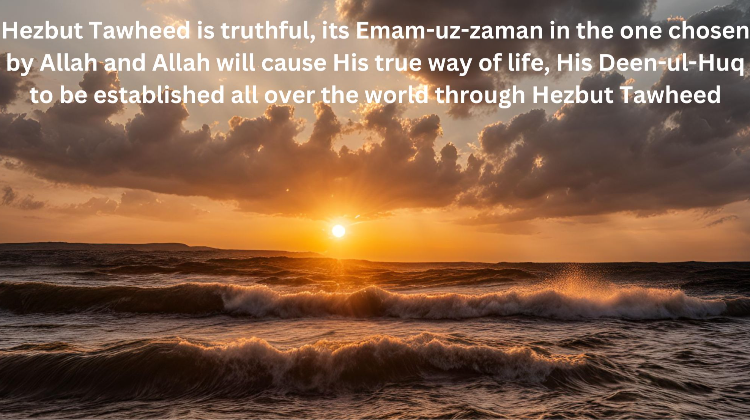
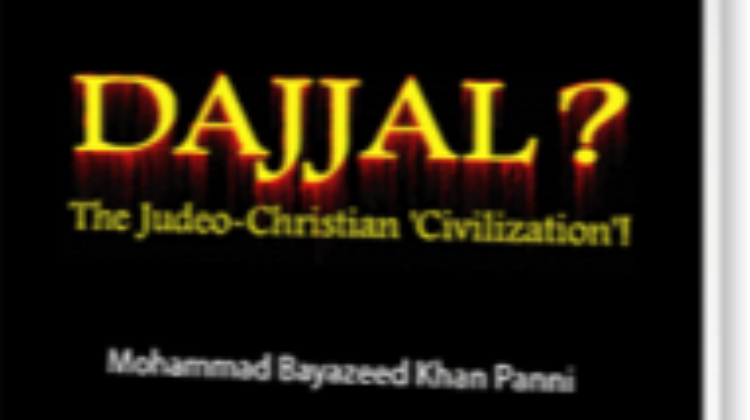
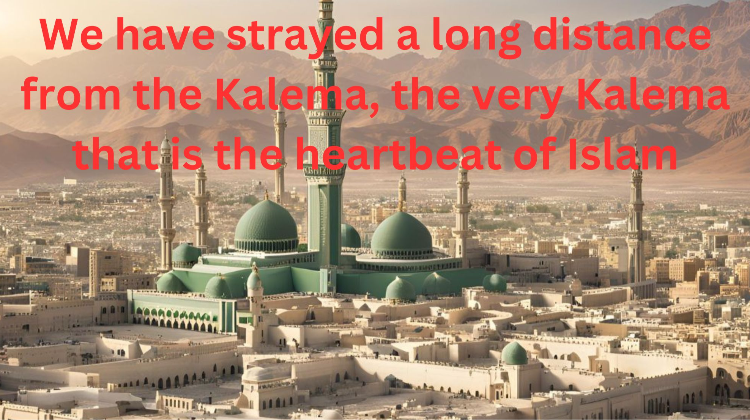
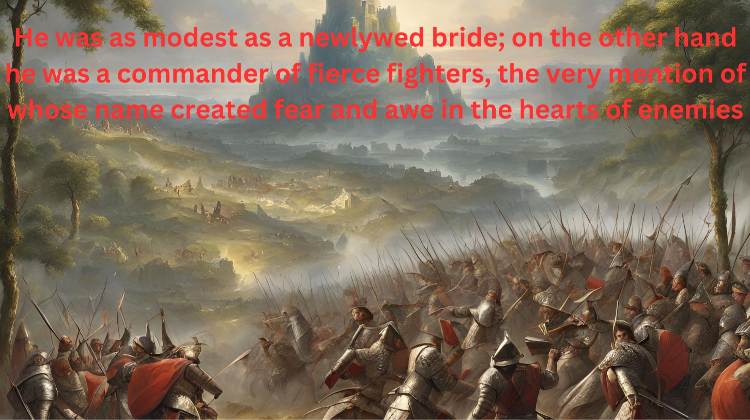
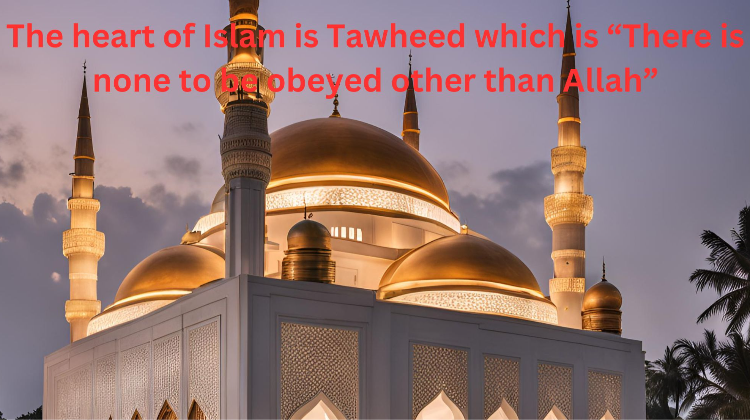
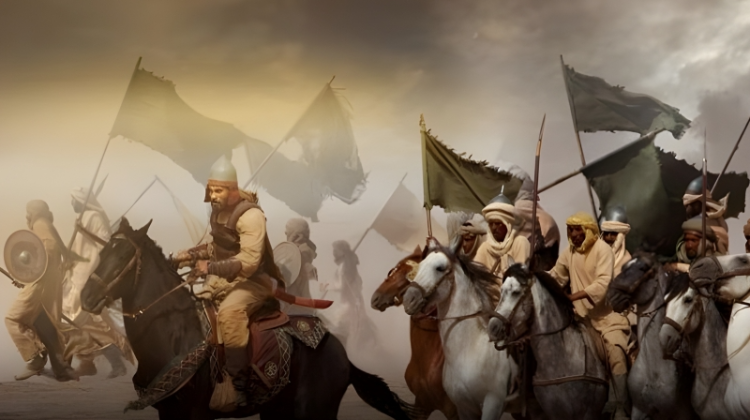


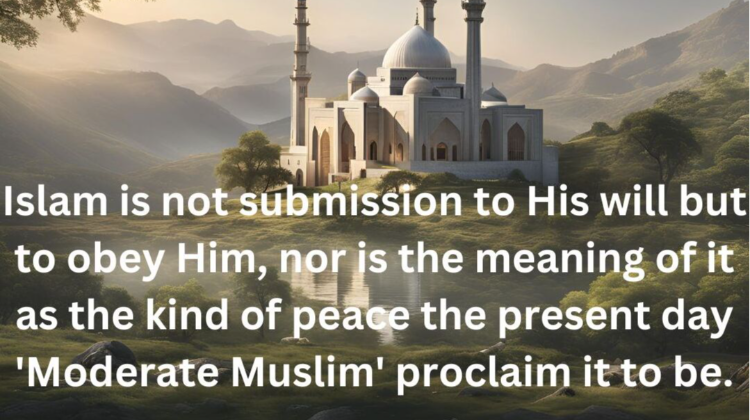
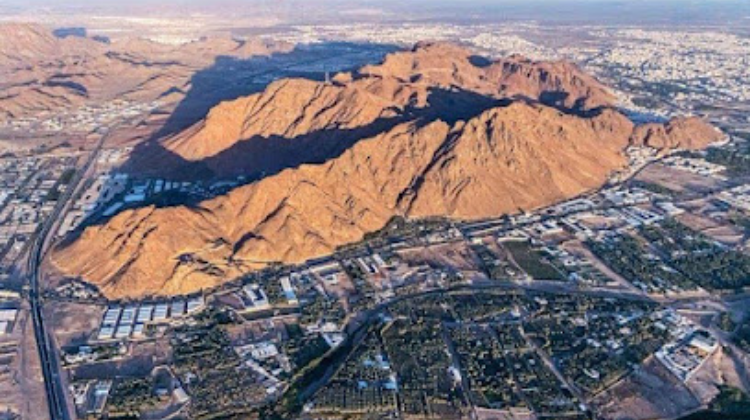
Leave a Comment